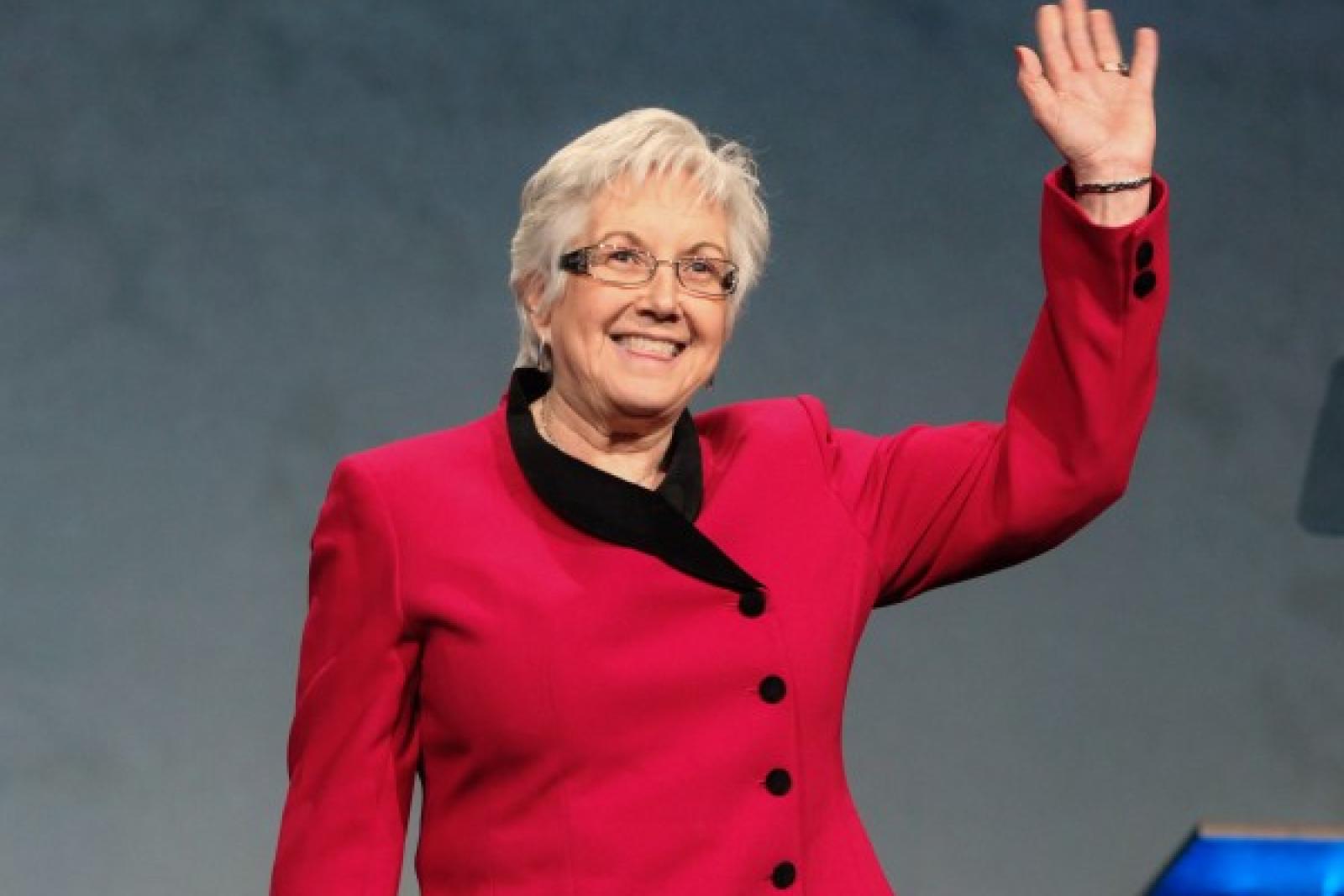Faculty emerita and trailblazer Marialice Bennett reflects on Women Pharmacist Day

When Faculty Emerita Marialice Bennett, RPh, FAPhA, BSPharm ’69, graduated from high school in 1964, only 8% of registered pharmacists were women. Today, women make up over 50% of the profession. At the time of Bennett’s graduation, the field of STEM and the workforce as a whole were opening to women in new ways.
“When I graduated from high school, very few women attended college. However, most of my friends did and became either teachers or nurses,” Bennett said. “When I attended orientation at The Ohio State University, the guidance counselor steered me into a math and science curriculum. I thought my only option was to be a math teacher.”
Bennett was surprised to find new pathways each day. Through her chemistry courses, she met students who were on the pre-pharmacy track, so she decided to explore that possibility for herself. With the support of Dr. Frank Bope, Bennett was able to acquire key scholarship funds for her education. Dr. Bope even introduced her to Clif Latiolais, the director of pharmacy at Ohio State’s University Hospital, to gain an internship position.
“My opportunities at the medical center in groundbreaking innovative practice under excellent mentorship laid the foundation for my entire career in pharmacy,” she said.
After graduating from the Ohio State College of Pharmacy in 1969 with a bachelor’s degree in pharmaceutical sciences, Bennett went on to become a trailblazer in the field of pharmacy. From hospital settings to community pharmacy practice and finally academia, Bennett has developed and implemented major innovative practices to transform the field of pharmacy.
Bennett said she is grateful to her friends and mentors who provided guidance throughout her many milestones. Although today’s female majority in pharmacy was “a bit of a surprise” for Bennett, women in pharmacy and other health science fields have always been there for her.
I’m excited to see what women today can create to make a better environment for women tomorrow.
“My first woman mentor was Marva Tschampel at the medical center,” Bennett recalled. “She taught me so much about always doing the right thing for the patient and modeled innovation and courage during a high-stack time of implementing one of the first clinical pharmacy services in the country.”
Others along the way include Anne Burns, RPh, BSPharm ‘80; Gloria Niemeyer Francke, PharmD; Lucinda Maine, PhD, RPh; and Stephanie Cook, DO. Their influence on Bennett proved the value and unique aspects of women’s perspectives in the field of health care. These women also shaped Bennett’s idea of what a great mentor looks like.
“Leaders influence you to follow their passion; mentors influence you to find your own path and passion,” Bennett said. “Although I was highly influenced by the vision of pharmacy practice that I saw unfold through the leaders at the medical center in those early years, my mentors guided me to where they saw a good fit for me and where they felt I would be successful fulfilling my dreams.”
Leaders influence you to follow their passion; mentors influence you to find your own path and passion.
While considering what may come next for women in pharmacy, Bennett reflected on the drastic changes that have taken place since her career’s start in 1969.
“We see more women in leadership positions within pharmacy itself and within volunteer pharmacy association leadership, but the numbers are still low in proportion to the number of women in the field,” Bennett said. “I’m excited to see what women today can create to make a better environment for women tomorrow. I would like to see women mentor future pharmacists to find their path and help all patients make the best use of their medications.”